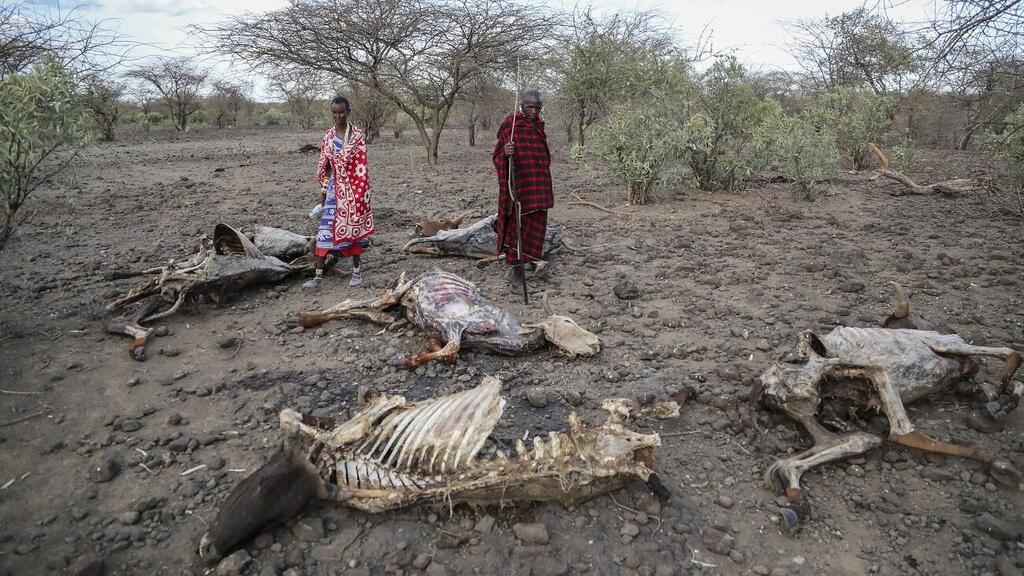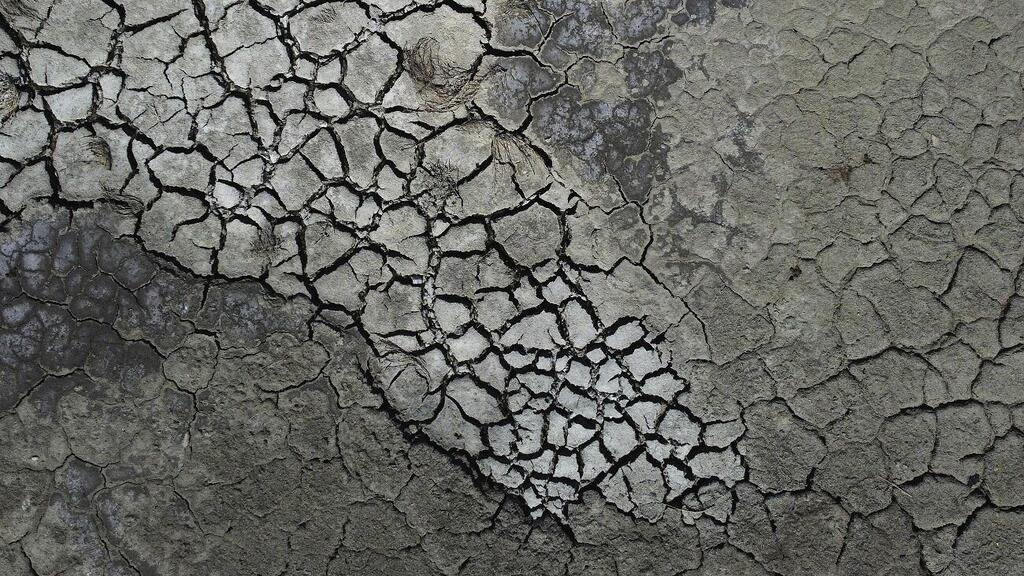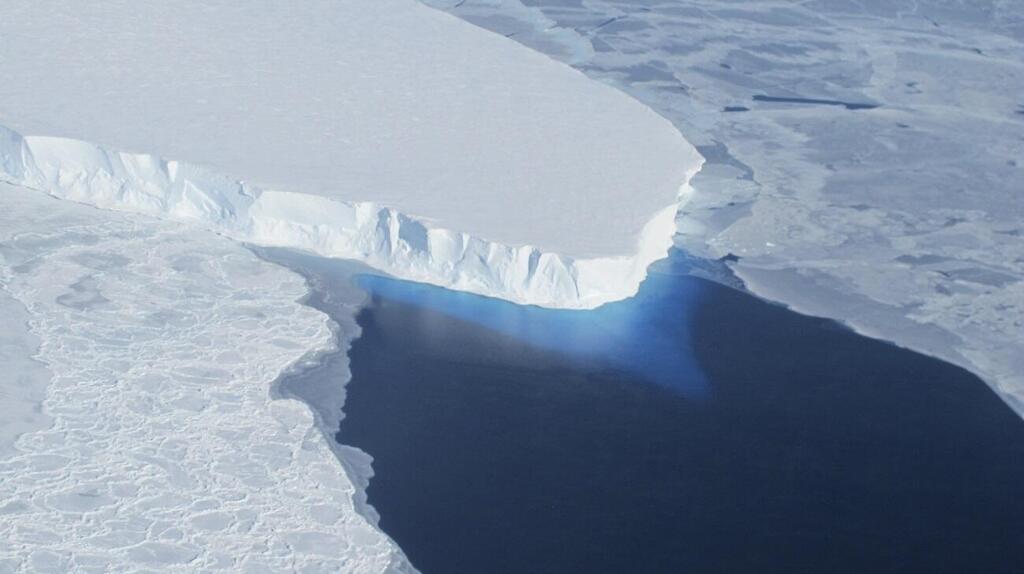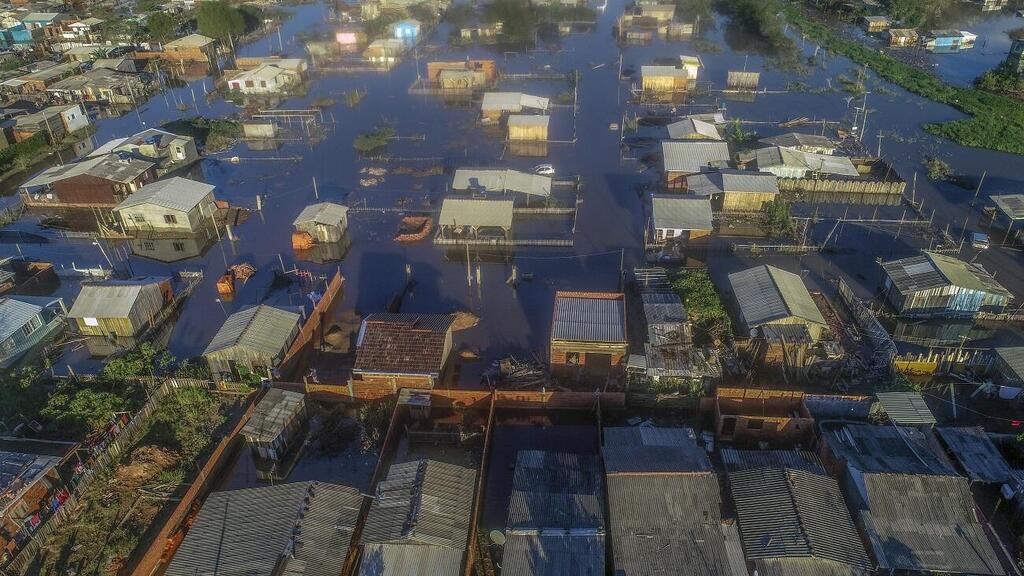Getting your Trinity Audio player ready...
While record-breaking heatwaves are taking place in areas of the world caused by the climate crisis, scientists are warning that the world is approaching a climate point of no return. A new study reveals that extreme weather events, such as wildfires and droughts, can accelerate the negative changes in the Earth's ecological systems, which may collapse much faster than previously thought.
More stories:
According to the study, more than a fifth of devastating ecological phenomena, such as the melting of Arctic permafrost, the melting of Greenland's ice sheet, and the sudden transformation of the Amazon rainforest into a savannah, would happen much earlier than previously expected and could take place even before 2040.
In climatology, the point of no return is the moment at which the climate would not be able to be restored to its previous state. At that point, natural systems will collapse, triggering a dangerous domino effect that would set off a chain of processes leading to environmental devastation across the world.
Using computer models, a British research team, including scientists from the University of Sheffield, examined four ecological systems under threat to understand what factors could lead to an ecological point of no return. In certain ecological systems, the combination of new extreme weather events to pre-existing stresses accelerated the arrival at the point of no return earlier over 80% of the time.
Such a scenario would mean ecological systems that were predicted to collapse by the end of the current century due to the influence of a single factor, such as global temperature rise, could potentially collapse within the next decade. Therefore, there may be less time than initially thought to respond to climate change and its possible societal and economic fallouts.
Ultimately, the researchers said a "perfect storm" of sustained stress from factors such as unsustainable land usage, agricultural expansion, and climate change - combined with extreme events like floods and wildfires, would rapidly endanger ecological systems around the globe.
The team examined two ecological systems, including the Chilika Lagoon in Odisha in India, and two examples of deforestation, including the historical collapse of the Easter Island civilization (Rapa Nui). The latter demonstrated the exploitation of trees by the first settlers on the island, where the dense forest (comprising at least 21 tree species) was cleared to fuel ovens, resulting in the entire island's transformation into grassland by the time European settlers arrived there in the 18th century.
The models were run over 70,000 times for each ecological system, with variables that were adjusted each time. Up to 15% of ecological collapses occurred as a result of new stresses or extreme weather events, even when the current ecological stress level remained the same.
In other words, even if ecological systems are managed sustainably by regulating deforestation and fishing laws, new stresses like global warming and extreme weather events could still lead to a systemic collapse.
"All four of the ecological systems examined showed the same outcomes," said Dr. Gregory Cooper from the University of Sheffield’s Sustainable Food Institute. "This has profound implications for our perception of future ecological risks. While we can’t predict how climate-driven tipping points will act with the impacts of human actions on ecological systems, our findings demonstrate the potential for each to bolster the other. Any increasing pressure on ecological systems will become more harmful and may have dangerous outcomes."
The number of extreme climate events has increased since 1980, and even a 1.5-degree Celsius rise in global temperatures will further amplify these events. Scientists are also concerned about additional impacts on ecological systems, as the collapse of one system directly affects other ecological systems in what is referred to as an ecological cascade effect with catastrophic consequences.
"More than a fifth of the ecological systems worldwide are at risk of collapse," said Prof. Simon Willcock from the universities of Rothamsted and Bangor, who participated in writing the study. "However, prolonged stresses and extreme weather events interact and accelerate rapid changes that may become outside of our ability to control. By the time they reach their point of no return, it’ll be too late."
According to Prof. Willcock, the world has convened around the climate and ecological crises through UN conferences on climate change and biodiversity over the past two years. However, the estimates discussed in these conferences were overly optimistic. For example, the Intergovernmental Panel on Climate Change's (IPCC) assessment states that the point of no return for the Amazon rainforest will occur in 2100. The new study, published in the Nature Sustainability journal, indicates that the collapse may happen several decades earlier.
For instance, it’s well known that the Amazon rainforest is threatened by deforestation. but, global warming and extreme climate events like droughts and forest fires could worsen the situation and accelerate its collapse, potentially reducing the Amazon rainforest's ability to generate rainfall, increasing dryness, and ultimately destabilizing this vital ecological system.
"Previous studies on ecological tipping points have indicated significant social and economic costs as a result of these changes during the second half of the 21st century,” explained Prof. John Dearing from the University of Southampton’s Geography and Environmental Science Department. “Our findings suggest that these costs could come much earlier than predicted.”





